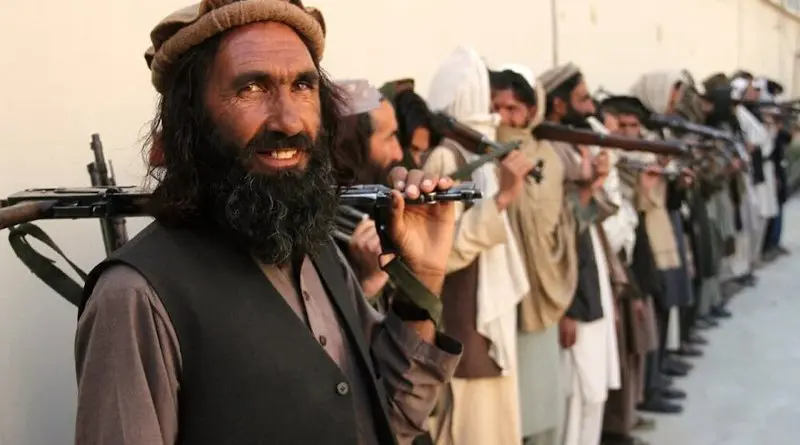Imperative For Strict Oversight On The Taliban – OpEd
By Shah Khalid
The Taliban who now control Afghanistan has caused significant turmoil and suffering in Afghanistan and beyond and continues to be a source of concern for global security. The need for strict oversight and monitoring of the Taliban’s activities cannot be overstated, given the grave consequences that could arise from their unchecked influence. This essay delves into the critical reasons for why such oversight is essential and examines potential repercussions should such vigilance not be enforced.
The Taliban’s historical record of human rights abuses is a compelling reason for strict oversight. During their rule from 1996 to 2001, they imposed a draconian form of Sharia law characterized by harsh and discriminatory treatment, particularly towards women. Women were deprived of basic rights, including access to education and healthcare. The strict dress code and the imposition of rigid social norms further restricted their freedom and autonomy. These oppressive policies not only harmed individuals but also curtailed the social and economic progress of the entire nation.
The potential resurgence of the Taliban and the lack of oversight could risk rekindling these past abuses, causing significant harm to the Afghan population. With the Taliban already assuming control of key regions in Afghanistan, concerns regarding the erosion of human rights and the reestablishment of oppressive practices have become more pronounced.
The first reason for strict oversight is to prevent a rollback of human rights and ensure the protection of Afghan citizens, particularly women and vulnerable communities. In the absence of monitoring and intervention, there is a genuine risk that the Taliban may reimpose their own version of Sharia law. Such a development would be detrimental not only to Afghanistan but also to the international community’s commitment to human rights and gender equality.
Moreover, the lack of stringent checks on the Taliban has the potential to destabilize Afghanistan and its neighboring countries. The Taliban’s influence is not limited to the borders of Afghanistan. Their actions and policies have historically spilled over into neighboring regions, increasing the risk of regional conflict and instability. The most recent example is the Taliban harboring of TTP which carry out attacks inside Pakistan having their bases in Afghanistan.
A key concern is the potential for cross-border militancy, insurgency, and terrorist activities. The Taliban’s historical links with various extremist groups, including Al-Qaeda, underscore the urgency of keeping their activities in check. Failure to monitor and restrict their influence may allow them to provide safe havens for these groups, jeopardizing regional and global security. The lessons of the past, such as the Taliban’s hosting of Al-Qaeda prior to the 9/11 attacks, are stark reminders of the international consequences of not effectively managing the Taliban’s reach.
As the Taliban are consolidating their rule on Afghanistan, it risks providing refuge and support to terrorist organizations, threatening not only the country but also regional and global security. The unchecked presence of such extremist groups may lead to an increase in violence and instability throughout South Asia and beyond. Additionally, the spill-over effect can result in heightened tensions and conflicts in neighboring countries, further destabilizing an already fragile region.
To mitigate these risks, international collaboration and the enforcement of strict checks on the Taliban’s activities are imperative. The involvement of regional stakeholders, neighboring countries, and global powers is essential in developing a comprehensive strategy for monitoring and containing the Taliban’s influence. This collaboration can help prevent the resurgence of terrorist elements and ensure the stability of Afghanistan and its neighbors.
Strategies for strict oversight should include targeted humanitarian aid and support for Afghan communities. Such initiatives can help build resilience within Afghan society, mitigate the impact of the Taliban’s influence, and provide alternatives to extremist ideologies. Support for education, healthcare, and economic development can empower Afghan citizens and counter the appeal of extremist groups.
Another facet of strict oversight involves the strategic utilization of economic and trade policies. The international community can leverage economic incentives to encourage the Taliban to engage in peaceful and constructive activities. Economic pressure can be an effective tool to influence the behavior of the Taliban leadership, motivating them to adhere to international norms and standards.
Furthermore, diplomatic efforts and negotiations with the Taliban must be approached with caution. While dialogue can be a valuable instrument for conflict resolution, it must be guided by strict conditions and requirements that ensure the protection of human rights and the prevention of extremism. Any diplomatic engagement should prioritize the interests and well-being of the Afghan people.
Thus, the necessity for stringent oversight of the Taliban cannot be overstated. The group’s historical record of human rights abuses, its potential to destabilize the region, and its historical links to terrorist organizations all underscore the critical need for international collaboration in monitoring and containing their influence. The consequences of failing to enforce such vigilance are severe and have far-reaching implications, affecting not only Afghanistan but also its neighbors and the broader international community. Addressing these concerns demands a collective global action plan and strategic commitment to maintain control over the Taliban’s influence. The consequences of failing to do so could lead to catastrophic outcomes, impacting not only Afghanistan but also the broader international community. The stability and security of the region are at stake, and it is imperative to act decisively to prevent further turmoil and suffering.

